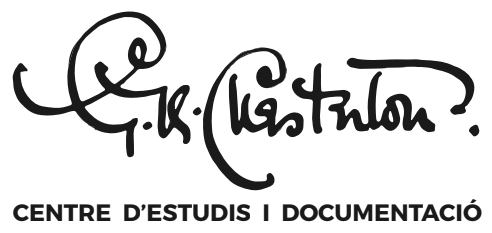Glossary
The glossary includes essential terms related to the person, life, and work of Chesterton. For reasons of space it must inevitably be incomplete. It includes the most important people – family, friends, contemporaries and adversaries -, the most significant places – streets, neighborhoods, buildings, literary, cultural and religious associations – and the most important public activities – conferences, debates, meetings, congresses , election campaigns and travel.
There are currently 12 terms in this directory beginning with the letter D.
Daily Herald, The
British newspaper published in London from 1912 to 1964; it campaigned for the Labour Party on behalf of the labour movement; Chesterton, after being sacked from the Daily News, contributed there in the years 1913 and 1914; his first article was published on the 12th of April 1913.
Daily News, The
British national newspaper; founded in 1846 by Charles Dickens, who was also its first editor; Chesterton first contributed in it in 1901 but was only a weekly columnist from 1903 to 1913; its owner, Roger Cadbury, sacked Gilbert for his constant attacks on him from The New Witness; on 1 February 1913 Chesterton wrote his last article there.
Daily Telegraph, The
British national newspaper published in London; founded by Arthur B. Sleigh in 1855; generally speaking, it enjoyed international reputation in the 20th century for its quality; when in 1919 Chesterton organised his trip to Palestine, he asked Bentley if the newspaper would help him fund it in exchange for a series of articles on Jerusalem; they were compiled in a book called The New Jerusalem (1920).
Darrow, Clarence (1857-1938)
American lawyer; he was a prominent member of the American Civil Liberties Union and an advocate of Georgist economic reform; Chesterton and Darrow engaged in two public debates in 1931, in New Haven and New York; they debated the subject Will the World return to Religion?
Debater, The
Journal published by the members of the Junior Debating Club; it ran for eighteen issues from 1891 to 1893.
Detection Club, The
Club founded in 1930 by a group of British mystery and detective story writers; G. K. Chesterton, Agatha Christie, Dorothy L. Sayers, Ronald Knox and E. C. Bentley took part in it, amongst others; Anthony Berkeley was instrumental in its creation and its first president was G. K. Chesterton (1930-1936); they used an astonishing initiation ritual including an oath written by Chesterton or Sayers; the club held periodical meetings in London.
Detective, The
Film based in the Father Brown stories; directed in 1954 by Robert Hamer; Alec Guinness plays the character of the clerical sleuth.
Devereux, The
Pub located at 20 Devereux Court (Temple, London); The Distributist League was born and held its first assemblies there.
Dickens, Charles (1812-1870)
English writer and social critic; he created some of the most renowned fictional characters in the world and is considered by many the best Victorian novelist; his works enjoyed an unprecedented popularity; he greatly influenced Chesterton, specifically during the period 1893-1895; the biographical study Charles Dickens (1906) helped rekindle interest for him in England, and his works were reedited by Everyman’s Library, with a foreword by Chesterton; Chesterton was elected president of The Dickens Fellowship for the years 1921-1922.
Distributism
Economic proposal in between capitalism and communism based on Pope Leo XIII’s encyclical Rerum Novarum (1891); it was the brainchild of Hilaire Belloc, Cecil Chesterton, Gilbert Keith Chesterton, Arthur Penty and Fr Vincent McNabb.
